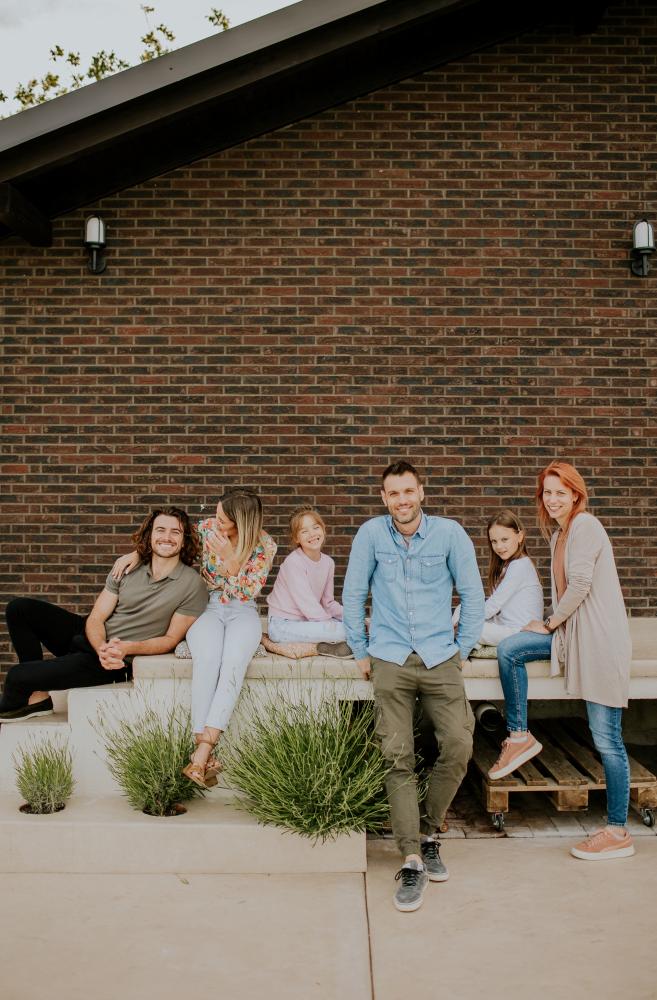Visit Us
Get Directions
so if you are looking for an intensive outpatient program that works well for adults in California, then this might…

Navigating the world of recovery and mental health treatment can be daunting, especially when you’re faced with numerous options for care. In California, Adult Intensive Outpatient Programs (IOP) offer a unique approach to healing, blending structured support with the freedom to maintain certain aspects of one’s daily life. As someone representing Benchmark Transitions, I’ve seen firsthand the transformative effect that a well-suited program can have on individuals striving to overcome addiction and mental health challenges.
In our experience, an adult IOP in California serves as a pivotal step towards long-term wellness, providing that essential balance between rigorous therapy and personal responsibility. This article delves into what these programs entail, the variety of therapeutic approaches used, and how they can be a beacon of hope for those seeking recovery.
An Adult Intensive Outpatient Program, or adult IOP, is a structured yet flexible treatment option tailored for those grappling with substance abuse or mental health issues. These programs typically involve a commitment of several hours per day, three to four days a week, allowing participants to continue with their regular life activities, such as work or school.
At Benchmark Transitions, we understand that not everyone is able to step away from their daily responsibilities to seek inpatient treatment. Adult IOP in California provides a solution that accommodates the need for ongoing support while respecting the client’s outside obligations.
Opting for an Adult IOP in California could be the right choice for various reasons. Perhaps you’ve completed a higher level of care and are seeking to transition back into your routine with continued support. Or maybe you need a more structured environment than weekly therapy sessions. Adult IOPs can meet these needs by providing a consistent schedule of treatment without total immersion.
We’ve seen clients thrive in an IOP setting when they feel empowered to apply the coping strategies they learn in real time, outside the program. It’s one thing to discuss hypothetical situations in a controlled therapy environment; it’s another to navigate real-world challenges with your support system just a phone call or session away. This application of therapy in daily life is where true progress shines.
Now, adult IOP California is not a one-size-fits-all deal. Programs use a mix of evidence-based therapies to address the individual needs of each client. Cognitive Behavioral Therapy (CBT) and Dialectical Behavior Therapy (DBT) are staples, teaching clients to change negative thought patterns and manage emotions effectively.
Group therapy is another core component, providing a space to share experiences and connect with others who understand your struggles. At Benchmark Transitions, we emphasize the value of community in recovery, where the shared journey fosters growth and resilience.
In some adult IOP California programs, you might encounter less conventional therapies like art or music therapy. These creative outlets can be particularly freeing for individuals who find it difficult to express themselves verbally.
Life skills training also plays a crucial role, especially for those who need to rebuild or establish a foundation for an independent, sober life. The combination of these therapeutic approaches ensures a holistic treatment process.
When considering an adult IOP in California, it’s important to review the admission criteria, which typically include age requirements, a primary diagnosis of a mental health disorder, and an ability to actively participate in therapeutic interventions.
At Benchmark Transitions, our team conducts a thorough assessment to ensure our IOP aligns with your needs. We believe in providing care that not only addresses the symptoms but also supports the person as a whole, preparing them for a life beyond our program.
The decision to enter an IOP is deeply personal. As someone who interacts with clients daily, I can attest to the courage it takes to step into treatment. It’s not just about the time commitment; it’s about the willingness to confront one’s own vulnerabilities and to work relentlessly towards recovery.
What can you expect from life within an adult IOP in California? The routine of therapy mixed with personal time is designed to simulate a more traditional lifestyle while still prioritizing recovery. Clients can test their coping skills in real-time, with the safety net of their treatment team’s support.
At Benchmark Transitions, we see the structured flexibility of an IOP as an opportunity to practice independence while remaining accountable. For many, this blend is what propels them toward successful long-term recovery.

Our alumni’s stories serve as powerful testaments to the efficacy of the adult IOP model. Witnessing clients return to their lives with renewed purpose, maintaining sobriety, and applying their learned skills is a profound reminder of the impact of our work.
A consistent theme in these stories is the transformative growth that occurs within the structure of an IOP. Many describe it as the bridge between intensive treatment and independent living–a critical phase that consolidates their recovery journey.
Completion of an adult IOP in California is not the end of the recovery journey. Aftercare planning is essential to ensure ongoing support, prevent relapse, and maintain the momentum gained during treatment.
At Benchmark Transitions, we collaborate with clients to develop aftercare plans that may include continued therapy, support groups, or other resources. This seamless transition is key to continued success and long-term health.
After an IOP, integrating back into the community can be both exhilarating and challenging. Clients often benefit from local support networks and activities that reinforce their new healthy habits.
We encourage our clients to remain connected to the recovery community, as these relationships can be a lifeline during tough times. Additionally, continuing to engage in enjoyable and fulfilling activities helps solidify the lifestyle changes initiated during IOP.
From our perspective at Benchmark Transitions, we view an adult IOP in California as a vital resource for those in recovery. It’s a space where individuals can find balance, push through challenges, and emerge stronger and more capable of navigating life soberly and independently.
We pride ourselves on being one of the linchpins of recovery for our clients. By offering adult IOP California, we extend a hand to those ready to transform their lives, providing a structured path to empowerment–one that honors their individuality and harnesses their innate strengths.
When you choose an adult IOP in California, you’re not just selecting a program; you’re engaging with a team dedicated to your well-being. At Benchmark Transitions, we bring a human touch to treatment, knowing the importance of connection, compassion, and personalized care in the journey to recovery.
Our approach is ingrained with the values of courage, conscience, and character–principles that guide us as we support our clients. We don’t just see the addiction or the mental health condition; we see the person behind them, deserving of a chance at a fulfilling life.
In summary, an adult IOP in California offers a structured, yet adaptable, pathway to recovery. It provides the necessary support while promoting independence, making it an ideal option for those ready to face their challenges without stepping away from their daily lives. At Benchmark Transitions, we are proud to be part of the solution, assisting our clients as they navigate the journey to lasting wellness.

As a pioneer in combining structured treatment with personal freedom, Adult Intensive Outpatient Programs (IOP) in California, such as ours at Benchmark Transitions, customize care to suit individual recovery needs. Our clients dedicate several hours a day, multiple times a week to therapy while balancing personal and professional commitments. This approach integrates rigorous therapeutic methods with the necessary space for clients to engage with their everyday lives, promoting a seamless transition toward long-term wellness.
An ideal candidate for an Adult IOP is someone who may already have completed a higher level of care, such as inpatient treatment, or someone who is looking for a middle ground between full immersion and weekly therapy sessions. Individuals in our programs benefit from a structured support system while retaining the ability to maintain work, school, or family responsibilities. By offering a flexible yet comprehensive support system, we allow for the application of coping strategies in real-world scenarios, which is a cornerstone of sustainable recovery.
At Benchmark Transitions, we prioritize evidence-based therapies that cater to the unique aspects of each client’s recovery journey. Cognitive Behavioral Therapy (CBT) and Dialectical Behavior Therapy (DBT) are fundamental, as they target negative thought patterns and emotional regulation. Group therapy sessions are vital for community building and peer support, fostering understanding and connection among individuals facing similar challenges. Creative therapies and life skills training complement these approaches, offering a holistic path to recovery and self-sufficiency.
One common misconception is that IOPs are less effective than inpatient programs due to the reduced hours of treatment. However, the reality is that IOPs cater to those who need flexibility without sacrificing the intensity of the therapy provided. It’s about striking a balance that works for the individual, and this balance is often the key to long-term success. Another misunderstood notion is that IOPs are only suitable for those with less severe addictions or mental health issues. In truth, IOPs can be highly effective for a range of conditions, preparing clients for independence and resilience in their day-to-day lives.
While specific success rates can vary, at Benchmark Transitions, we are exceedingly proud of the number of success stories that have emerged from our Adult IOP programs. Clients often report feeling better equipped to manage their sobriety and apply the strategies they’ve learned upon returning to their lives. The consistent theme we’ve observed is transformative growth and an enhanced ability to navigate life soberly, which speaks volumes about the efficacy of IOPs. Success is not only measured by sobriety rates but also by the quality of life improvements and the sustainability of recovery as observed in our alumni.
Aftercare planning is an essential element of the recovery process and is key to preventing relapse. In our program at Benchmark Transitions, we diligently collaborate with clients to develop comprehensive aftercare plans. This includes continuing therapy, support groups, and other resources tailored to ensure a smooth transition and the sustenance of the positive changes made during their time in the IOP. We believe in the significance of aftercare as it solidifies the foundation laid in treatment for continued success and a healthier future.
Post-IOP community integration is a critical step in reinforcing the new, healthy lifestyle our clients have begun to lead. We encourage our clients to actively engage with local support networks and to immerse in activities that align with their recovery goals. At Benchmark Transitions, we understand the value of community as a lifeline, and therefore, provide guidance and resources to maintain the connection to the recovery community and to foster personal growth and enjoyment through various fulfilling activities.
At Benchmark Transitions, we infuse our treatment approach with personal touches, recognizing the individual behind the addiction or mental health condition. Our team is dedicated to delivering care that not only focuses on clinical needs but also nurtures the human spirit. With a compassionate approach and commitment to personalized care, we guide our clients with principles that reflect courage, conscience, and character–ensuring that every step of their journey is taken with their unique strengths and goals in mind.
For those contemplating an Adult IOP, I advise taking the time to thoroughly research and assess the options available to you. Consider the flexibility of the program, the types of therapies offered, and the experience of the staff. It’s also important to evaluate the program’s approach to aftercare and community integration. At Benchmark Transitions, we welcome questions and discussions to ensure our program is the right fit for you. Remember, the courage to seek help is the first step on the path to recovery, and we are here to walk that path with you.